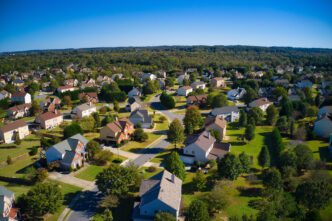In a landscape marked by economic fluctuations, recent developments have led to a noticeable dip in mortgage rates. This change comes as the potential for a government shutdown looms, prompting investors to seek refuge in safer investment options like U.S. government bonds.
The prospect of a government shutdown is influencing financial markets. Historically, such events lead to decreased interest rates as investors gravitate towards the security of U.S. government bonds. This trend is reaffirming itself, offering some respite to those concerned about rising mortgage rates. However, a prolonged shutdown could disrupt other financial processes, potentially affecting the ability of borrowers to secure loans from entities like the FHA and VA or obtain necessary government-backed insurance.
This shift in mortgage rates follows the Federal Reserve’s recent actions. Earlier sentiments were unsettled after the Fed adopted a more aggressive stance, leading investors to anticipate higher rates for a more extended period. The market’s reaction was stronger than expected, but recent assessments have led to a stabilization, as stakeholders have adjusted their strategies to align with the Fed’s communications.
Additionally, the latest Core Personal Consumption Expenditures (PCE) report, which is a key measure of inflation, met expectations without significant surprises. Although less impactful than the earlier Consumer Price Index (CPI) report, the PCE figures provided a degree of relief by not exacerbating financial concerns in the markets.
In conclusion, the impending government shutdown and recent Fed communications have created a dynamic environment for mortgage rates. While the immediate effect has been a decline in rates, the long-term ramifications remain contingent on the duration of political and economic uncertainties. Stakeholders are advised to stay informed as developments unfold.
Source: Redfin








